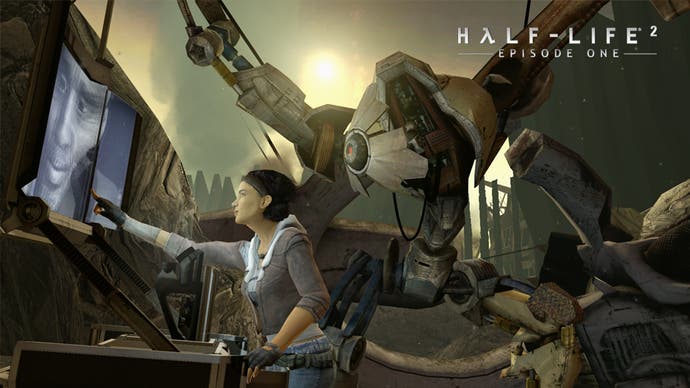Warren Spector on game development
Part 1: On formats, models, and differing design philosophies.
Earlier this month, we talked to Valve Software about Half-Life 2: Episode One and all manner of things to do with game development. At one stage, Gabe Newell said that Valve wanted to "get people through as much entertainment as possible".
"This is an argument I have with Warren Spector," he said. "He builds a game that you can play through six different times. So that means that people pay for the game, but don't get to play five sixths of the game, which I feel is a mistake."
Not entirely surprisingly, Spector said he'd like the chance to defend himself against his good friend's comments. What follows is a transcript of a lengthy discussion about all things games - delightfully, for a man who admits he's "pretty committed to radio silence" about his own work at Junction Point Studios, he had plenty to say.
I'm afraid we're still in "work don't talk" mode here at Junction Point. When the time is right, we'll let you know. As far as the Toon rumours, I'd caution people not to leap to too many conclusions based on very limited data! There's a story behind that but, sadly, I may never be able to tell it!
One nice thing (among many) of working with Valve is that they're pretty darn committed to quality! I don't believe in "We'll ship it when it's ready" - I mean, you have to stay in business - but we're taking the time to make sure things are as right as they can be. And we're talking with people about other projects, too, so my guess is that you'll see some things from JPS maybe a little sooner than expected and some other things a little further down the road. But, again, I'm pretty committed to radio silence on details these days.

Working with Valve is a natural outgrowth of my belief that Steam is a great experiment in direct distribution, and direct distribution is a big part of our future. I left Ion Storm with the goal - well, it was one of my goals, anyway - the goal of testing the digital distribution waters. When Valve offered the opportunity to do that, I jumped at it. But that doesn't mean there won't also be traditional boxed games, in partnership with publishers and traditional retailers from JPS.
Well, thanks for the nice comment about my track record - I think you might be surprised at how little a track record buys you when you're moving from internal publisher development to crazy independent start-up (especially during a platform transition and a time of rising costs).
Anyway, creative freedom is important, but as I said in my design keynote at GDC a few years ago, there's nothing wrong, or inherently less creative in licences and sequels. In fact, among the projects we've discussed with people over the last year and a half are a variety of licensed games, collaborations with creative folks in other media, you name it. I'm open to just about anything that allows us to advance the cause, and the art, of gaming. Anyone who says they can't do creative work in someone else's fictional world just isn't thinking hard enough - or has an ego far bigger than mine!
It's certainly NOT all about creativity these days, if it ever was! The cost of games is appalling to me, and I don't see any way around it. As far as profit for developers in a digital distribution vs. boxed retail scenario, I don't know that the new model is sufficiently mature to say.
That's something that'll have to shake out as Steam matures, and as other digital distribution schemes come online in the PC and console markets. One would hope that removing cost of goods and publisher overhead would leave more money for developers but we'll just have to wait and see.

My involvement varies based on a lot of factors. The most notable one is the phase of the project. I really enjoy the early conceptual phases of a project and the tuning and shut down phases at the end. The middle period - the production and execution phases - I'm much more of a "client", I guess you'd say, making sure the project's core goals are being met and not doing a lot of hands-on stuff. But I'm always involved in establishing a project's goals and in making the decisions at the end that can make or break a game's quality, fun factor and so on.
My involvement is also driven by the needs of the team I'm working with. If a team needs me to write dialogue, I can do it. If I need to "direct" (the way a movie director does), I can do it. I'm just at a point in my life and career (a word I never thought I'd apply to myself!) where I try to focus on the stuff I love and leave the other stuff to folks who love that other stuff. That seems most likely to result in great games.

